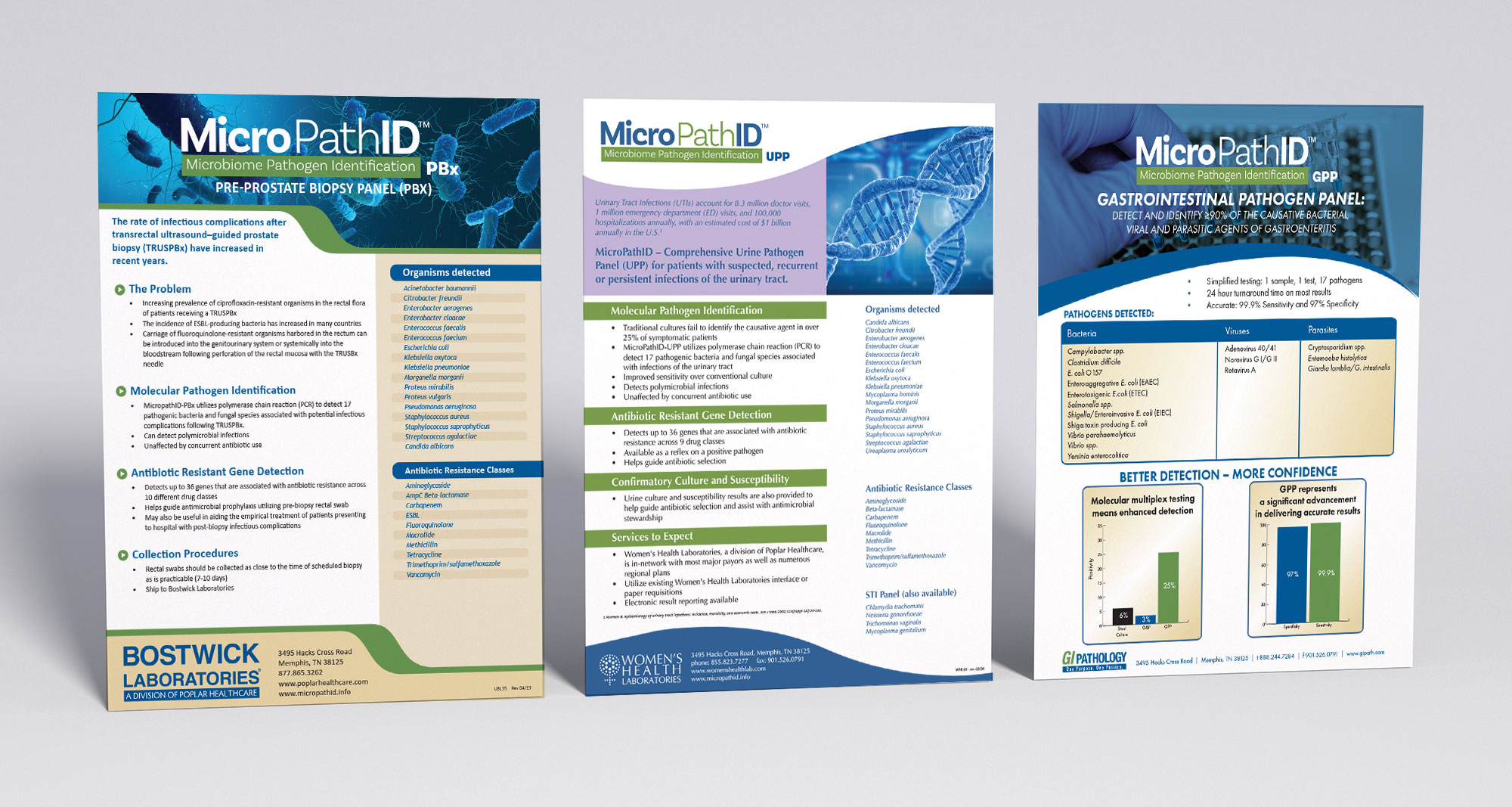THE CHALLENGE
Poplar Healthcare needed to introduce MicroPathID, a new service available through several of its divisions. They required a cohesive branding strategy, including a new logo and marketing materials, as well as a stand-alone website to effectively showcase the capabilities of MicroPathID.
THE SOLUTION
To address these challenges, we implemented a comprehensive strategy focusing on branding and digital presence:
Logo Design
- Designed a new logo for MicroPathID that aligned seamlessly with the existing Poplar Healthcare brand.
- Ensured the logo conveyed the innovative and professional nature of the MicroPathID service.
Marketing Collateral
- Created various pieces of marketing collateral tailored for different divisions within Poplar Healthcare.
- Developed cohesive designs that highlighted the unique features and benefits of MicroPathID.
Website Development
- Built a fully responsive, user-friendly website using WordPress to serve as the central hub for MicroPathID information.
- Designed each page to detail the functionalities of MicroPathID panels, with clear navigation and links back to division-specific websites for further information.
THE OUTCOME
The implementation of a robust branding strategy and digital solutions for MicroPathID resulted in a successful launch within Poplar Healthcare’s divisions. The new logo and marketing collateral effectively communicated the value and capabilities of MicroPathID, enhancing its visibility and appeal to healthcare professionals. The responsive website provided a comprehensive resource for customers to learn about MicroPathID’s services, driving engagement and supporting Poplar Healthcare’s mission to deliver innovative diagnostic solutions.
Client Since:
- 2006
Our Services:
- Web Design
- Web Development
- UI/UX Design
- Brand Identity
- Print Design
About MicroPath ID
- MicroPathID (Microbiome Pathogen Identification) is a highly multiplexed PCR technology that provides accurate detection of bacterial, viral and fungal pathogens affecting human health, along with testing for up to 36 genes that confer antibiotic resistance across 10 drug classes.





